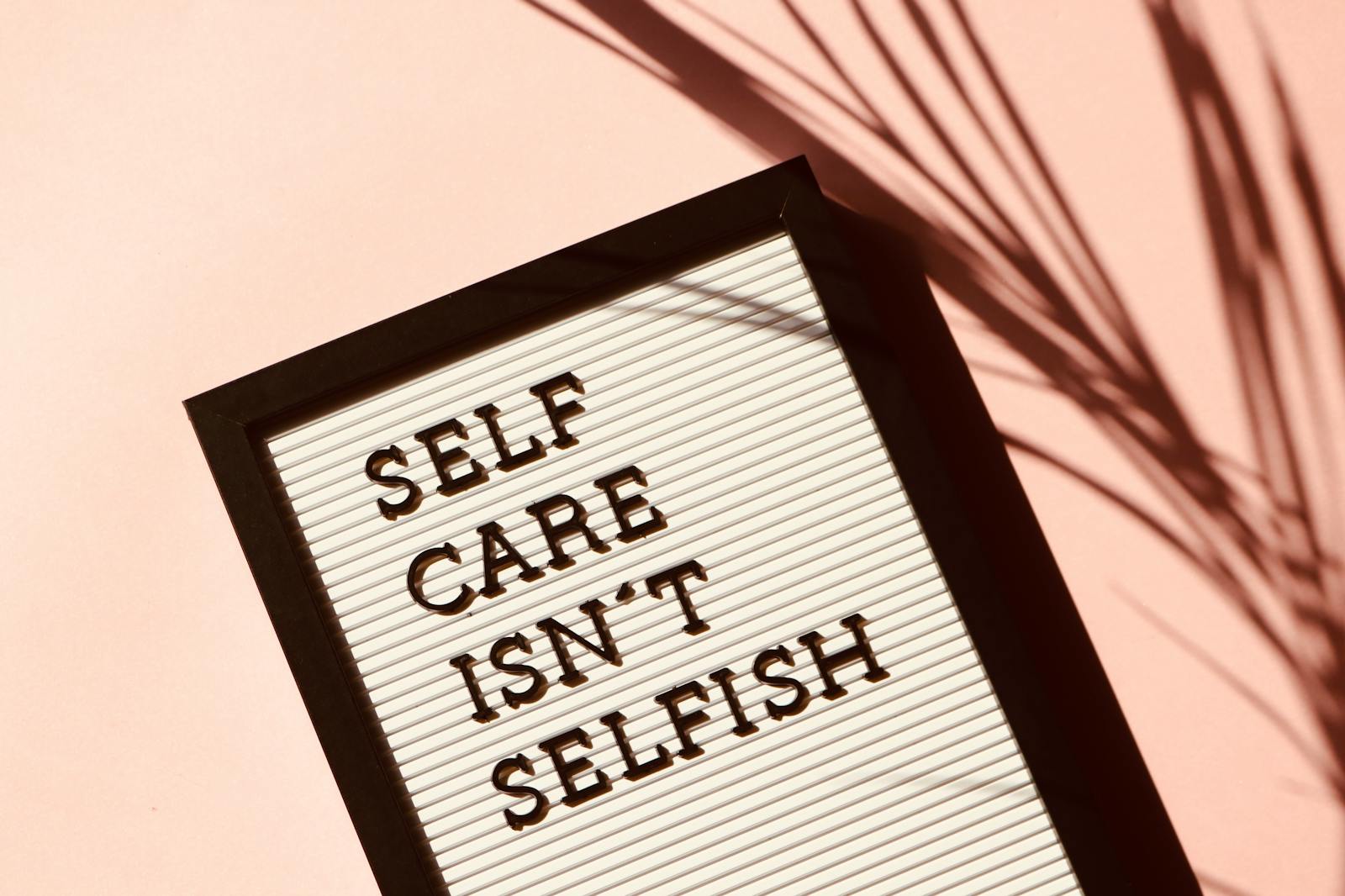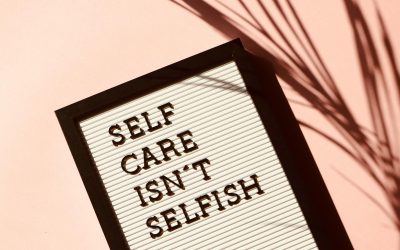Strategies Self-Care for Balance in a Busy World
Prioritizing Self-Care in a Busy World: Are you overwhelmed and stressed by the demands of your busy life? It’s easy to get caught up in the hustle and bustle of daily life and forget to take care of yourself. However, prioritizing self-care is essential for your mental and physical well-being. This article will explore strategies for finding balance and prioritizing self-care in a busy world.
Self-care is not a luxury; it’s a necessity. When you care for yourself, you’re better equipped to handle life’s challenges with resilience and positivity. But with so many demands on your time and energy, it can be hard to know where to start. That’s why we’ve compiled a list of practical strategies to help you prioritize self-care and find balance in your busy life.
From creating boundaries to incorporating rituals, there are many ways to nurture your mind, body, and soul. We’ll explore the importance of acknowledging your needs and offer tips for practicing self-compassion and resilience. Remember, finding balance is an ongoing journey, but with the right tools and mindset, you can prioritize self-care and live a happier, healthier life.
Understanding Self-Care
Prioritizing Self-Care in a Busy World: Self-care has gained popularity in recent years as people become more aware of the importance of physically, mentally, and emotionally caring for themselves. It refers to any intentional actions you take to care for your well-being. This section will define self-care, discuss its benefits, and dispel common misconceptions.
Defining Self-Care
Self-care encompasses a wide range of activities that promote well-being. It can include anything from taking a relaxing bath to engaging in regular exercise. The key is that these activities intentionally focus on improving your physical, mental, or emotional health. Self-care is not selfish but essential to maintaining a healthy and balanced life.
Benefits of Self-Care
Prioritizing self-care has numerous benefits. It can reduce stress, improve mood, increase energy levels, and boost overall health. When you take care of yourself, you are better equipped to handle the challenges of daily life. Additionally, self-care can improve your relationships with others by helping you feel more centered and grounded.
Common Misconceptions
Several misconceptions about self-care can prevent people from prioritizing it. One common misconception is that self-care is selfish. However, taking care of yourself is not selfish; it is necessary for your well-being and those around you. Another misconception is that self-care is only for people with much free time. In reality, even small acts of self-care, such as taking a few minutes to meditate or stretch, can significantly impact your overall well-being.
In summary, self-care is essential to maintaining a healthy and balanced life. It encompasses many intentional activities that promote physical, mental, and emotional well-being. By prioritizing self-care, you can reduce stress, improve mood, increase energy levels, and boost overall health. Don’t let common misconceptions prevent you from taking care of yourself; even small self-care acts can significantly impact your well-being.
Assessing Your Needs
When prioritizing self-care, it’s important first to assess your needs. This involves taking a closer look at the different areas of your life and identifying the stressors affecting your well-being. By doing so, you can start to develop strategies for balance that work for you.
Identifying Stressors
The first step in assessing your needs is to identify your stressors. This can include anything from work-related stress to relationship issues or financial concerns. By understanding what is causing you stress, you can start to take steps to address these issues and reduce their impact on your well-being.
Setting Personal Boundaries
Another critical aspect of assessing your needs is setting personal boundaries. This means being clear about your limits and priorities and saying no to things that don’t align with your values or goals. By setting boundaries, you can create more space for self-care and reduce the stress and overwhelm from trying to do too much.
Self-Care Assessment Tools
To get a better sense of your self-care needs, you may want to consider using self-care assessment tools. These can help you identify areas where you may neglect your well-being and suggest improvement. Some popular self-care assessment tools include the Self-Care Wheel and the Self-Care Assessment Worksheet.
Overall, assessing your needs is a critical first step in prioritizing self-care. By taking the time to identify your stressors, set personal boundaries, and use self-care assessment tools, you can start to develop strategies for balance that work for you.
Time Management Techniques
When it comes to prioritizing self-care, effective time management techniques are essential. By managing your time well, you can ensure enough time for self-care activities and still get your work done. Here are some time management techniques that you can use to balance your busy schedule:
Effective Planning
Effective planning is the key to managing your time well. Create a to-do list for the day or week and prioritize your tasks. Use a planner or calendar to schedule your activities and appointments. Break down larger tasks into smaller ones and set deadlines for each. This will help you stay organized and on track.
Delegation Strategies
Delegation is an effective time management technique that can help free up time for self-care activities. Identify tasks that can be delegated to others, whether at work or home. Delegating tasks can help you focus on more important tasks and reduce your workload.
Saying No
Prioritizing Self-Care in a Busy World: Saying no is a critical time management technique that can help you prioritize self-care. Learn to say no to tasks or activities that don’t align with your priorities or goals. Setting boundaries and protecting your time can be challenging but essential. Saying no can help you avoid overcommitting and feeling overwhelmed.
Using these time management techniques, you can prioritize self-care and find balance in a busy world. Remember to be flexible and adjust your schedule as needed. With adequate time management, you can take care of yourself and still achieve your goals.
Self-Care Practices
Taking care of yourself is essential to maintain your overall well-being. Here are some self-care practices that you can incorporate into your daily routine:
Physical Activities
Physical activities are a great way to boost your mood and health. Regular exercise helps you stay fit and releases endorphins, natural mood boosters. You can try different physical activities such as jogging, yoga, or dancing. Find an activity you enjoy and make it a part of your daily routine.
Mindfulness and Relaxation
Mindfulness and relaxation techniques can help reduce stress and anxiety. You can practice mindfulness by focusing on your breath, body, or surroundings. Meditation, deep breathing, and progressive muscle relaxation are some relaxation techniques that you can try. Taking short breaks throughout the day to practice mindfulness or relaxation can help you stay calm and focused.
Nutrition and Sleep
Eating a balanced diet and getting enough sleep are crucial for physical and mental health. Eat nutritious meals that include fruits, vegetables, whole grains, and lean proteins. Avoid processed foods and sugary drinks. Getting enough sleep is also vital for your overall well-being. Aim for 7-8 hours of sleep each night and establish a consistent sleep routine. Avoid using electronic devices before bedtime, and create a relaxing environment in your bedroom.
Incorporating these self-care practices into your daily routine can help you prioritize your well-being and find balance in a busy world. Remember, self-care is an ongoing practice, so make it a priority.
Psychological Self-Care
Regarding self-care, it’s essential not to overlook your psychological well-being. Addressing your mental health needs can be as important as taking care of your physical health. Here are some strategies for psychological self-care that you can try:
Positive Self-Talk
One way to promote good mental health is by practicing positive self-talk. This involves replacing negative thoughts with positive ones. For example, instead of thinking, “I can’t do this,” try telling yourself, “I can do this, and I will do my best.” By reframing your thoughts in a positive light, you can boost your confidence and self-esteem.
Therapy and Counseling
Another way to prioritize your psychological well-being is by seeking therapy or counseling. Talking to a mental health professional can help you work through issues that may be causing stress or anxiety. A therapist can also provide you with coping strategies and tools to help you manage your mental health.
Stress-Reduction Techniques
Stress can damage mental health, so it’s essential to find ways to manage it. Many stress-reduction techniques, such as meditation, deep breathing, or yoga, can help you relax and reduce feelings of anxiety.
Taking care of your mental health is as important as your physical health. By practicing positive self-talk, seeking therapy or counseling, and using stress-reduction techniques, you can prioritize your psychological well-being and achieve balance.
Social Support Systems
In a busy world, feeling isolated and disconnected from others is easy. However, having a solid social support system is crucial for maintaining your well-being and finding balance. Here are some strategies for building and maintaining social support systems.
Building a Support Network
One way to build a support network is to contact family and friends. Make time for regular phone calls, video chats, or in-person visits. Communicating openly and honestly with your loved ones about your needs and feelings is essential.
Another way to build a support network is to join a group or club that aligns with your interests. This can be a great way to meet new people who share your passions and hobbies. Look for local groups on social media or community bulletin boards.
Community Involvement
Getting involved in your community can also help you build a support network. Volunteering for a local organization is a great way to meet new people and give back to your community. It can also be a way to learn new skills and gain valuable experience.
Attending community events, such as festivals, concerts, or farmers markets, can also be a way to connect with others. Take advantage of these opportunities to start conversations with people and make new friends.
Maintaining Relationships
Maintaining relationships takes effort, but it’s worth it. Make time for your loved ones and prioritize your relationships. Schedule regular date nights with your partner or outings with friends.
It’s also essential to communicate effectively with your loved ones. Practice active listening and express your feelings clearly and respectfully. Remember, relationships are a two-way street, so be open and receptive to feedback from others.
Building and maintaining a robust social support system can balance your busy life and maintain your well-being.
Work-Life Balance
Prioritizing Self-Care in a Busy World: Finding a balance between work and personal life can be challenging but essential for overall well-being. Here are some strategies to help you prioritize self-care and achieve a better work-life balance.
Setting Work Boundaries
Setting boundaries between your work and personal life is crucial for achieving balance. One way to do this is to establish set work hours and stick to them as much as possible. Communicate these hours to your colleagues and clients so they know when you are available and when you are not.
Another way to set boundaries is to turn off notifications and emails outside work hours. This will help you disconnect from work and focus on your personal life. Additionally, consider delegating tasks or saying no to projects that don’t align with your priorities or workload.
Remote Work Challenges
Separating work and personal life has become even more challenging with the rise of remote work. When working from home, creating a designated workspace separate from your living space is vital. This will help you mentally separate work from personal life.
Another challenge of remote work is the lack of social interaction. To combat this, consider scheduling virtual coffee breaks or lunch meetings with colleagues to stay connected.
Career Satisfaction
Finding career satisfaction is an essential component of work-life balance. If you feel unfulfilled in your job, this can spill over into your personal life. Consider taking a skills assessment to identify areas of interest and explore new career paths. Additionally, seek out opportunities for growth and development within your current role.
Remember, finding a work-life balance is a journey, not a destination. By setting boundaries, addressing remote work challenges, and finding career satisfaction, you can prioritize self-care and better balance work and personal life.
Technology and Self-Care
Technology has become integral to our daily lives in today’s fast-paced world. From smartphones to laptops, we are constantly connected to the digital world. While technology has made our lives easier in many ways, it can also be a source of stress and anxiety. However, technology can promote self-care and well-being with the right approach. Here are some ways you can use technology to prioritize self-care:
Digital Detoxing
Sometimes, the best way to prioritize self-care is by disconnecting from technology altogether. Digital detoxing involves taking a break from technology and unplugging from the digital world. This can help reduce stress, improve sleep, and increase mindfulness. First, try setting aside a specific time to disconnect from your devices daily. This could be an hour before bed or during meal times. You can also try taking a digital detox vacation, where you unplug and disconnect for a set period.
Online Support Groups
Technology can also be a great way to connect with others and find support. Online support groups can provide a sense of community and help you feel less alone. There are many online support groups available for a variety of issues, from mental health to chronic illness. You can also find support through social media groups or forums. Just be sure to prioritize your mental health and well-being by setting boundaries and avoiding toxic or triggering content.
Health Apps and Trackers
There are many health apps and trackers available that can help you prioritize self-care. From meditation apps to fitness trackers, these tools can help you stay on track and reach your goals. For example, a mindfulness app can help you practice meditation and reduce stress, while a fitness tracker can help you stay active and reach your fitness goals. Just be sure to choose apps and trackers that align with your values and goals, and don’t become too reliant on technology for your well-being.
Incorporating technology into your self-care routine can be a great way to prioritize your well-being in a busy world. By taking a mindful approach and using technology to align with your values and goals, you can promote self-care and find balance in your daily life.
Elizabeth Redd: I am a passionate advocate for Health and Healing, dedicated to empowering individuals to live their best lives.
As the founder and publisher of Health and Healing, I have established myself as a guiding force in the wellness industry.
I am committed to providing the latest research, holistic approaches, and inspiring stories to open new possibilities for your health and healing journey.
Learn more about Elizabeth and Join Us at Health and Healing. Also, check out My About Page.






0 Comments